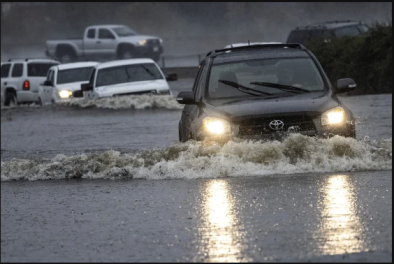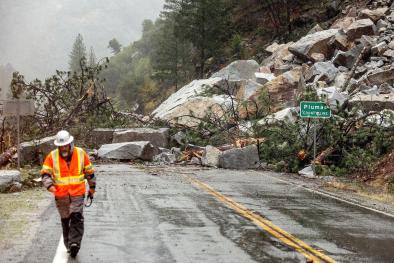Science Source
Precipitation regime change in Western North America: The role of Atmospheric Rivers
- States that daily precipitation in California has been projected to become less frequent even as precipitation extremes intensify, leading to uncertainty in the overall response to climate warming
- States that precipitation extremes are historically associated with Atmospheric Rivers (ARs)
- Evaluates 16 global climate models for realism in modeled historical AR behavior and contribution of the resulting daily precipitation to annual total precipitation over Western North America
- Finds that the five most realistic models display consistent changes in future AR behavior, constraining the spread of the full ensemble
- The most realistic models also project increasing year-to-year variability of total annual precipitation, particularly over California, where change in total annual precipitation is not projected with confidence
- Focuses on three representative river basins along the West Coast and shows that—while the decrease in precipitation frequency is mostly due to non-AR events—the increase in heavy and extreme precipitation is almost entirely due to ARs
- This research demonstrates that examining meteorological causes of precipitation regime change can lead to better and more nuanced understanding of climate projections
- It highlights the critical role of future changes in ARs to Western water resources, especially over California
Related Content
Headline

Oct 26, 2021 | NBC News
Record storm slams West Coast as tens of millions on East Coast brace for nor'easter
Headline

Oct 25, 2021 | Climate Nexus Hot News
Atmospheric River Dumps Precipitation On California, Risking Landslides In Wildfire Burn Scars
Science Source
| Geophysical Research Letters
Flood Runoff in Relation to Water Vapor Transport by Atmospheric Rivers Over the Western United States, 1949–2015
Christopher P. Konrad, Michael D. Dettinger
Science Source
| Geophysical Research Letters
Assessing the climate‐scale variability of atmospheric rivers affecting western North America
Alexander Gershunov, Tamara Shulgina, F. Martin Ralph et al


